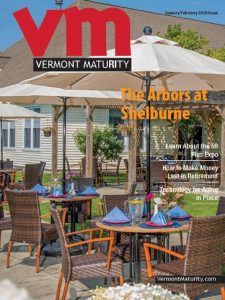
Making a move into senior housing is not a decision that’s made lightly, but it is often a decision that’s made by multiple people, including adult children.
Those children of prospective residents are involved in their parents’ transition into a new setting 73% of the time, according to one study from Care.com, but complementary data suggests seniors themselves are still very much a part of the decision.
Although seniors and their families have many of the same values when it comes to picking the right residence, the two parties tend to have different perspectives and considerations, especially depending on the level of care that’s needed, says Jody Gastfriend, vice president of care management at Care.com, an online resource that connects families with care providers.
Senior Consumers Still Involved in Living Arrangement Choices
During the annual Assisted Living Federation of America (ALFA) conference in May, a session panel featured seniors and adult children who weighed in on what they valued in a senior living community. Many emphasized the need to appeal to both audiences.
One woman spoke of searching for the right community for her mother. The executive director essentially ignored the actual customer—her mother—and only tried to sell the community to her, the adult child, she said, and it turned them both off.
“If Mom isn’t happy, nobody is happy,” says Margaret Wylde, president and founder of market research firm Promatura Group.Many times, executive directors are not taking care of the true customer [the future resident].”
There hasn’t been much change in the past 10 years in the number of senior living residents who said they made the decision to move in, versus an adult child making it for them, Wylde says.
In a 2001 study of current independent living residents conducted by Promatura Group, 28% of respondents said they, along with their spouse, had made the decision to enter a community independent of their adult child(ren).
In 2012, the same question in a new study of current independent living residents was posed. Nothing had changed: an identical 28% reported making the decision without adult child involvement.
Daughters Still Wield the Most Influence
Daughters of senior living residents remain the most influential of adult children compared to sons, whose participation dropped off more than 5% in the past 10 years, according to Wylde.
Like the independent living study, a recent survey of 500 Care.com users revealed that seniors are overwhelmingly involved in decision-making, and had a say in the search for a care provider about 70% of the time. In contrast, only about 10% of seniors said they alone made all the arrangements.
Nearly three-quarters of the senior care seekers were the adult children, which Care.com defines as daughters, sons, nieces/nephews, mothers/fathers-in-law.
“Most of the time, our care advisors speak with the adult child,” confirms Scott Healy, executive vice president of marketing and general manager at Care.com.
Out of those adult children, it was the adult daughter 71% of the time, a number that didn’t surprise Brookdale Senior Living, the largest national provider of senior-related services.
“We have not seen a significant change in [the amount of daughters or daughters-in-law involved in the transition-to-senior care process],” says Jim Pusateri, Senior Vice President of Sales and Marketing at Brookdale Senior Living, adding that daughters have usually been the initial inquirer among adult children caregivers.
Reasons for Delaying the Transition
Often, adult children encounter stronger resistance from their parents regarding a move into independent living, which can be viewed as an unwelcome downsizing rather than a health-related necessity.
“There may be more obstacles around that, whereas the perception of assisted living is, ‘Ok, I need more care now,’” says Gastfriend. “There may be more of a sense of urgency, and the impetus is somewhat different.”
There is often more emotion involved in the assisted living interaction because the family may be in crisis, Pusateri agrees.
“In an assisted living setting, there is more urgency because Mom or Dad can’t go back home, which can be difficult for families that are not only trying to make a good decision, but learning about this lifestyle and how its services are able to meet their family member’s needs,” he says.
Fear of infringing on their parents’ sense of control is a primary reason some adult children delay the process of finding a senior living community, says Wylde.
Others are simply overwhelmed and stall the process because the crisis may have lost some of its urgency for the moment, Pusateri adds.
Another reason adult children put off a senior living purchase for their mom or dad is fear or denial on the part of the parent(s) that they need to move, as well as the cost.
“Mostly, adult children are slow [to make the decision] because it’s not a fun decision to make,” Wylde says. “You don’t want to make a parent do something you know they don’t want to do. But if we can change the marketing angle—and it has to be a huge shift in the way we present what it is we provide—if we can do that, then my contention is that the adult themselves would look at the move as an opportunity.”
Printed with permission from the Assisted Living Federation of America (ALFA).





 Related Articles & Free Subscription
Related Articles & Free Subscription
Comment here